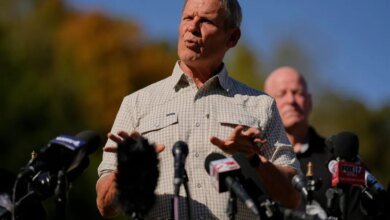China ‘is not just talking, it’s walking the walk,’ say green industry leaders on why the eastern superpower is a new leader in climate action

For the first time, the United States did not send a delegation to the United Nations Climate Change Conference, where countries put forward action plans to mitigate climate change. It comes after Trump withdrew the US from the Paris Agreement in January, calling it “unfair” and “biased” – and taking the world’s historically largest emitter out of the fight against climate change.
But green industry leaders say that doesn’t mean climate diplomacy is dead.
“When there is a void, something or someone will fill it,” Farouz Nadar, Executive Director of the UN Global Compact Network in Malaysia and Brunei, said at the Fortune Innovation Forum in Kuala Lumpur, Malaysia, on Tuesday. “In climate leadership, we are now seeing many countries from the Global South stepping forward.”
He referred to the 30th session of the Conference of the Parties currently being held in Belem, Brazil, noting that many of the prominent pavilions were from Asian countries, with a particularly large presence from China.
“Climate diplomacy is now getting a big push from the Chinese,” Nader said.
His fellow panelists agreed, adding that as China intensifies global climate talks, it is also taking concrete climate action.
“(China) is not just talking the talk, it’s walking the walk,” said Ying Staton, chief sustainability officer and vice president for Asia Pacific at Plastics Energy.
Staton added that the eastern superpower was leading the global energy transition, by expanding production and reducing the cost of renewable energy sources. It produces 90% of the world’s solar panels, 60% of its wind turbines, 85% of its battery cells, and dominates rare earth minerals.
However, Trump’s decision to withdraw did not completely erode US influence in climate talks, as a phalanx of state and local representatives – including California Governor Gavin Newsom – made the trip to Brazil instead.
“(This shows) that there are a lot of policy levers you can pull, and it’s often local municipal governments that have the most direct levers of influence,” Staton said.
Although governments have a role to play, so do companies.
“The new economy will depend on the climate movement, so there is business sense in being part (of it),” Nader said. “Corporations are the easiest stakeholders to work with, because they are driven by a common language of profitability.”
For example, the UN Global Compact Network in Malaysia and Brunei, which Nader chairs, often works with Sarawak Energy Corporation — Malaysia’s largest green energy producer — on corporate sustainability efforts, Nader said.
Investing in climate action should also be framed as a strategic benefit for companies, rather than a cost. Ultimately, Staton said the green premium — or the extra cost companies pay for sustainability — is only temporary.
“The more you build and expand, the cheaper these solutions become, and that’s how you push the green premium to zero,” she said. “If you look at renewable energy 20 years ago, there was a green premium, which is not there today.”
Aying Wang, Envac AB’s president and CEO for Greater China, Southeast Asia and India, echoed Staton’s sentiments, adding that scale is key. She said green technology and infrastructure needed to expand, so companies could “do the right thing” and invest in them without losing profitability.
2025-11-20 06:02:00




